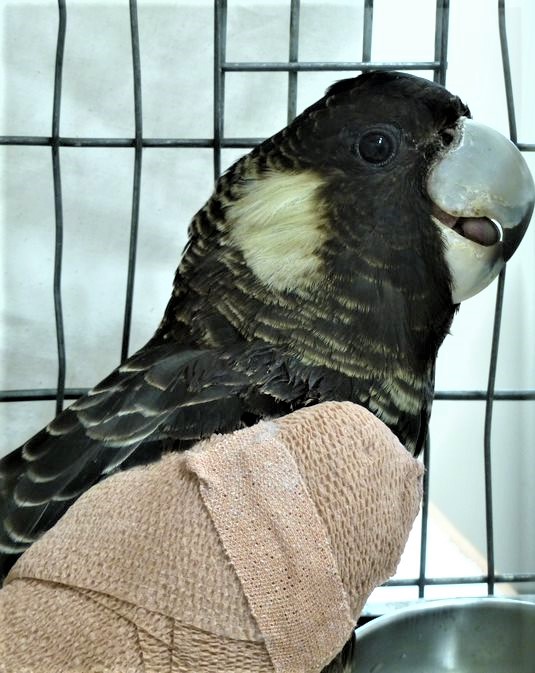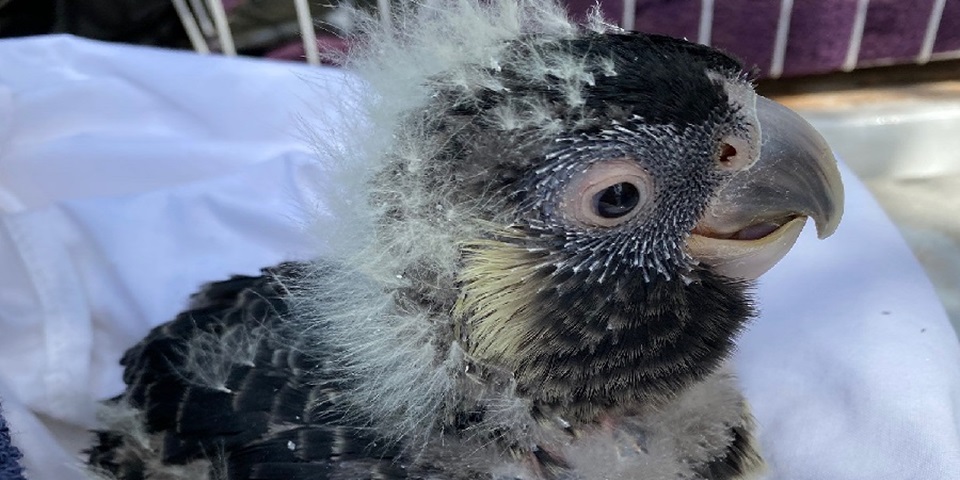Black cockatoos can often be successfully treated and rehabilitated. Each year, hundreds of injured or unwell black cockatoos receive treatment at the Perth Zoo and rehabilitation at registered black cockatoo facilities, prior to their successful release back into wild flocks.
If you notice a black cockatoo that appears injured or unwell, it may need help. Occasionally you may notice a black cockatoo being attacked by ravens: if the black cockatoo appears injured or is not flying away, again it may need help.
Remember: black cockatoos are wild animals and easily frightened, and they have a very powerful beak which can deliver a serious bite. Please only attempt to handle a black cockatoo if it is safe for you to do so (depending on the condition of the bird, this generally will involve the use of a towel to restrain the bird and then putting the bird in a strong box or pet carrier). It is usually best instead to stay with the animal and call the numbers below to chat with a rescue specialist about what to do.
Where to find help
Call the Black Cockatoo Rescue Service (a free service) at Kaarakin Black Cockatoo Conservation Centre immediately on (08) 9390 2288 during work hours or 0448 046 202 after hours.
Alternatively – call the Parks and Wildlife “Wildcare Helpline” on (08) 9474 9055.
If you feel you can safely and competently handle and transport the bird, take the bird to a local vet clinic. The vets or nurses will ring the Black Cockatoo Rescue Service directly. Remember, vets can take in wildlife and will not charge you.
Take good notes! It is important to record where you found the bird and any other details about the situation you found the bird in. This will help the rescue team to understand what may have happened to the bird. It may also mean that after rehabilitation, the black cockatoo can be returned to its own flock – the best possible outcome.
Visit Black Cockatoo Rescue Service to find out more about their rescue services and amazing rehabilitation work, including their dedicated rescue service operated by volunteers.
Safety first
If possible, stay with the bird.
Make things safe for you and the bird by:
- Removing any threats such as dogs and cats
- Only attempting to handle the bird if you feel safe and competent to do so and have the correct resources (the phone helplines listed above can provide advice).
- Always wash your hands thoroughly with soap and hot water after handling any wildlife.
- A washing basket or milk crate may be placed over an injured cockatoo to provide some protection whilst waiting for rescue assistance. Provide shade over the basket if necessary.
- Do not feed or offer water. (This applies to all rescued wildlife, due in part to the possibility that an injured animal may need veterinary treatment, which may require their stomach to be empty).
- Don’t attempt to house the bird for any period of time. Its best chance of survival is in the hands of experts as soon as possible. In Western Australia, you must be a licenced wildlife carer to rehabilitate wildlife.

We acknowledge and thank Perth Zoo for sharing images of cockatoos in their care.
